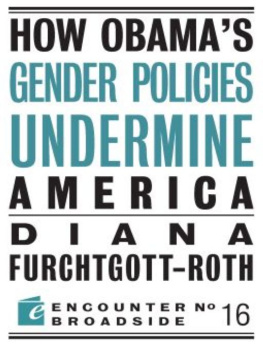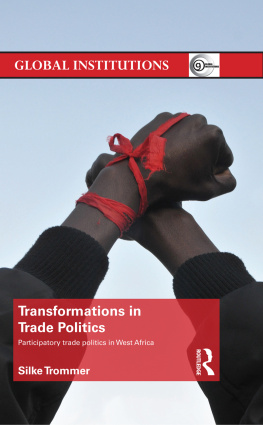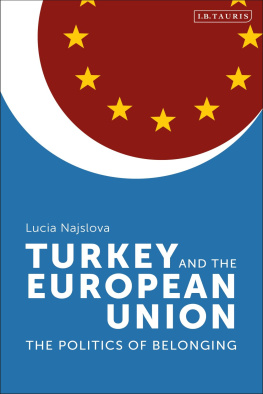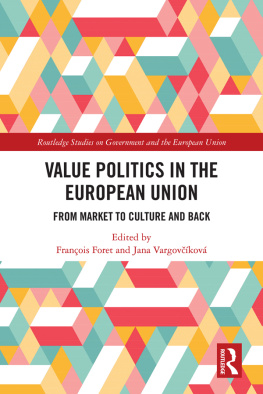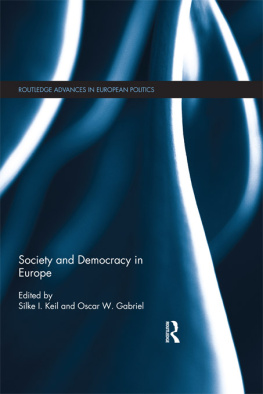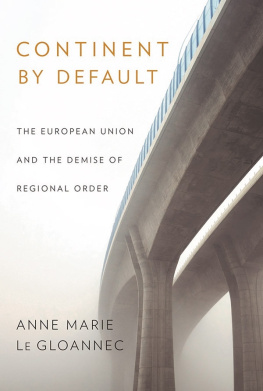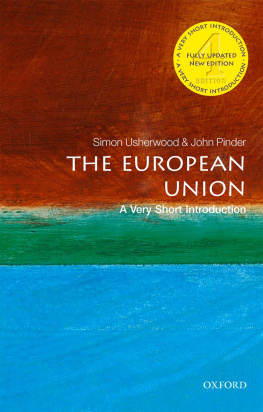Silke Roth - Gender Politics in the Expanding European Union
Here you can read online Silke Roth - Gender Politics in the Expanding European Union full text of the book (entire story) in english for free. Download pdf and epub, get meaning, cover and reviews about this ebook. year: 2008, publisher: Berghahn Books, Incorporated, genre: Politics. Description of the work, (preface) as well as reviews are available. Best literature library LitArk.com created for fans of good reading and offers a wide selection of genres:
Romance novel
Science fiction
Adventure
Detective
Science
History
Home and family
Prose
Art
Politics
Computer
Non-fiction
Religion
Business
Children
Humor
Choose a favorite category and find really read worthwhile books. Enjoy immersion in the world of imagination, feel the emotions of the characters or learn something new for yourself, make an fascinating discovery.

- Book:Gender Politics in the Expanding European Union
- Author:
- Publisher:Berghahn Books, Incorporated
- Genre:
- Year:2008
- Rating:3 / 5
- Favourites:Add to favourites
- Your mark:
- 60
- 1
- 2
- 3
- 4
- 5
Gender Politics in the Expanding European Union: summary, description and annotation
We offer to read an annotation, description, summary or preface (depends on what the author of the book "Gender Politics in the Expanding European Union" wrote himself). If you haven't found the necessary information about the book — write in the comments, we will try to find it.
Silke Roth: author's other books
Who wrote Gender Politics in the Expanding European Union? Find out the surname, the name of the author of the book and a list of all author's works by series.
Gender Politics in the Expanding European Union — read online for free the complete book (whole text) full work
Below is the text of the book, divided by pages. System saving the place of the last page read, allows you to conveniently read the book "Gender Politics in the Expanding European Union" online for free, without having to search again every time where you left off. Put a bookmark, and you can go to the page where you finished reading at any time.
Font size:
Interval:
Bookmark:

www.berghahnbooks.com
p. cm.
A catalogue record for this book is available from the British Library
ISBN 978-1-84545-517-0 paperback
ISBN 978-0-85745-070-8 ebook


| ASTRA | Central and Eastern European Women's Network for Sexual and Reproductive Health and Rights |
| CEDAW | Convention on the Elimination of All Forms of Discrimination |
| CEE | Central and Eastern Europe |
| CEECs | Central and Eastern European countries |
| CIS | Commonwealth of Independent States |
| CR | Czech Republic |
| SSD | Czech Social Democratic Party |
| CSW | Commission on the Status of Women |
| DAPHNE | Fight Against Violence Program |
| EC | European Community |
| ECJ | European Court of Justice |
| ECNC | European Community Network on Childcare |
| ECU | European Currency Unit |
| EEC | European Economic Community |
| EES | European Employment Strategy |
| ENAR | European Network Against Racism |
| EOCP | Equal Opportunities Childcare Problem |
| ETA | Equal Treatment Authority |
| EU | European Union |
| EWL | European Women's Lobby |
| GDR | German Democratic Republic |
| KARAT | Regional Coalition of Women's NGOs in CEE and CIS |
| KCM | Communist Party of Bohemia and Moravia |
| MFA | Ministry of Foreign Affairs |
| MLSA | Ministry of Labor and Social Affairs |
| NDP | National Development Plan |
| NESC | National Economic and Social Council |
| NESF | National Economic and Social Forum |
| NEWW | Network East-West Women |
| NGO | Nongovernmental organization |
| NMS-10 | New Member States-10 |
| NWCI | National Women's Council of Ireland |
| OECD | Organization for Economic Cooperation and Development |
| OMC | Open Method of Coordination |
| OSKA | Organization of Women's Initiatives (Poland) |
| OWEN | East-West European Women's Network (Germany) |
| UFV | Independent Women's Association (Germany) |
| UK | United Kingdom |
| UN | United Nations |
| UNDP | United Nations Development Fund |
| WIDE | Women in Development Europe |

Font size:
Interval:
Bookmark:
Similar books «Gender Politics in the Expanding European Union»
Look at similar books to Gender Politics in the Expanding European Union. We have selected literature similar in name and meaning in the hope of providing readers with more options to find new, interesting, not yet read works.
Discussion, reviews of the book Gender Politics in the Expanding European Union and just readers' own opinions. Leave your comments, write what you think about the work, its meaning or the main characters. Specify what exactly you liked and what you didn't like, and why you think so.

